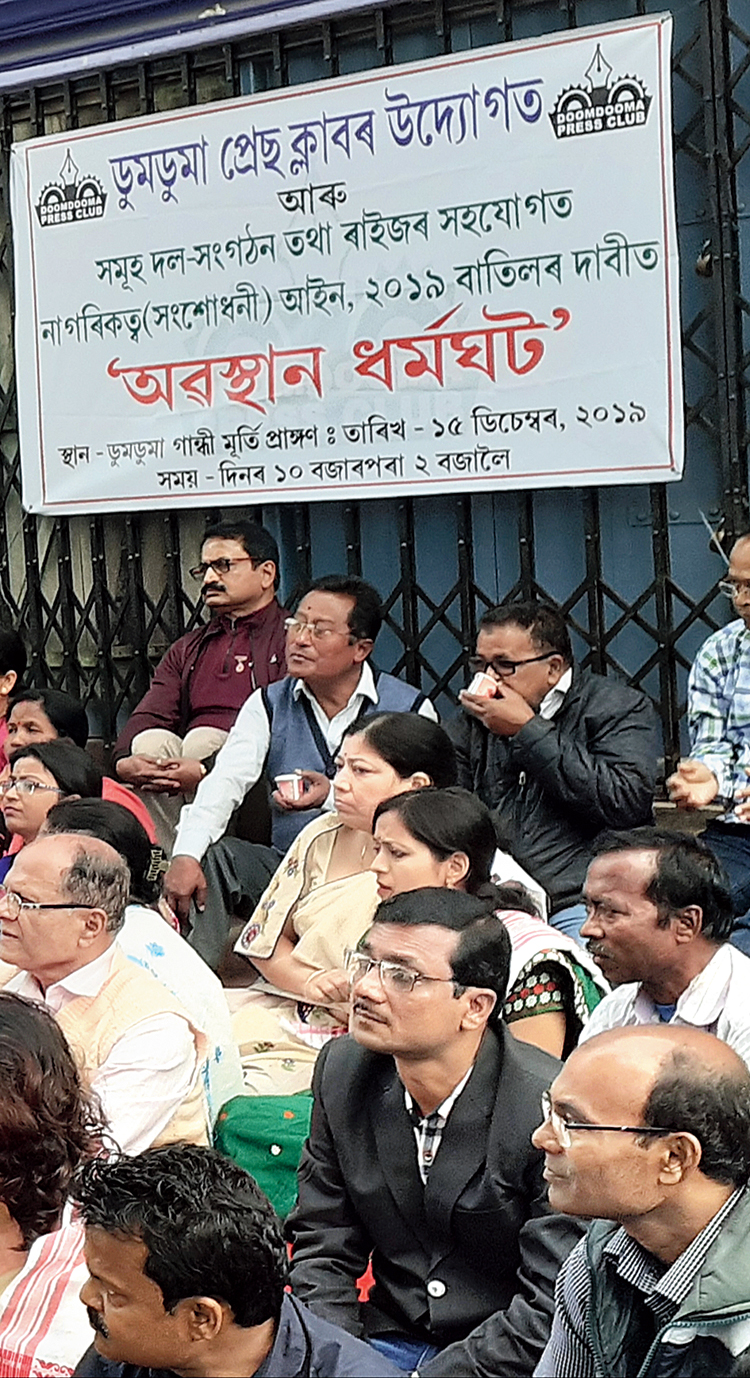A hot cup of tea is what’s keeping the Citizenship Amendment Act (CAA) protesters going in the tea belt of Upper Assam as it beats the winter chill and hunger.
A timely meal is a dream for most protesters, who leave home early and return late and find shops near protest venues closed with the owners and employees joining the protests.
The protesters literally survive on tea as they hit the streets.
Most carry tea with them as they leave home early and nearby people also serve tea to them.
Winter in the Northeast is usually severe and sometimes downright nasty. Though Assam is experiencing a normal winter, the mercury has slid many degrees and is likely to dip further in the next few days. There is a cold spell sweeping across Upper Assam.
The morning fog and mist reduce visibility to a few metres. Winter in the region is more severe this time, like what it used to be a decade ago.
“The people’s devotion to the motherland for which they are out on the streets is noteworthy in such a weather,” a resident of Doomdooma said.
Lata Mishra Moran, a resident of greater Tinsukia, who steps out every morning to take part in the anti-CAA protest with a hot pot of tea, said, “The people of Assam are spending sleepless nights over the Act. Life’s routine has gone for a toss as everyone, be it a teacher, a roadside vendor, an advocate or a housewife, is out on the roads in cities, towns and villages. It’s cold too. In such circumstances, tea has been working as a tonic for those who are protesting without food and do not know when they will return home because they cover long distances on foot and take part in many demonstrations.”
Thousands of people in Upper Assam, from all communities and across religions — Bhojpuri, Bengali, Rajasthani, Gorkha, South Indian, Chinese, Assamese, Muslim, Christian, Sikh and Adivasi — are taking part in the protests spontaneously.
Binay Dubey, the president of All Assam Students Union (AASU)’s Tinsukia unit, told The Telegraph on Wednesday, “The love, affection and cooperation seen among the people during protests is unprecedented. Thousands, including AASU members, are out to protest since morning and return home late at night. In such situations, we are fully dependent upon tea. People carry money but find no food as shopkeepers too close down shops to protest. Villagers bring tea, chira (crushed rice) and gur (jaggery) for protesters. I salute the love and respect each and every person of Assam is showing to aai Axom (mother Assam).”
All over Upper Assam — Daisajan, Kakopathar, Saikhowa, Tingrai, Digboi, Margherita, Dibrugarh, Sivasagar, Jorhat, Dhemaji, Lakhimpur, Sonitpur, Golaghat — people are seen offering protesters tea, sattu, litti-chokha, chana-mung, jhal muri and water bottles with a humble smile.
Ram Jatan Yadav, phulam gamosa around his neck, offered sattu to protesters on the Makum-Digboi national highway.
“They are all our brothers and sisters. It’s our pleasure that we can extend a little help to them. No business now, only service to our people,” he said.
The mass agitation, which turned violent after the Act was passed in Parliament, is on a peaceful track now.
“This peaceful agitation will go a long way and the government will have to withdraw the CAA in the greater interest of Assam and the country,” Tulya Chetia, an Assamese subject teacher, said.
And all the way, there is a cup of hot tea and bonfire to warm up the protesters.










